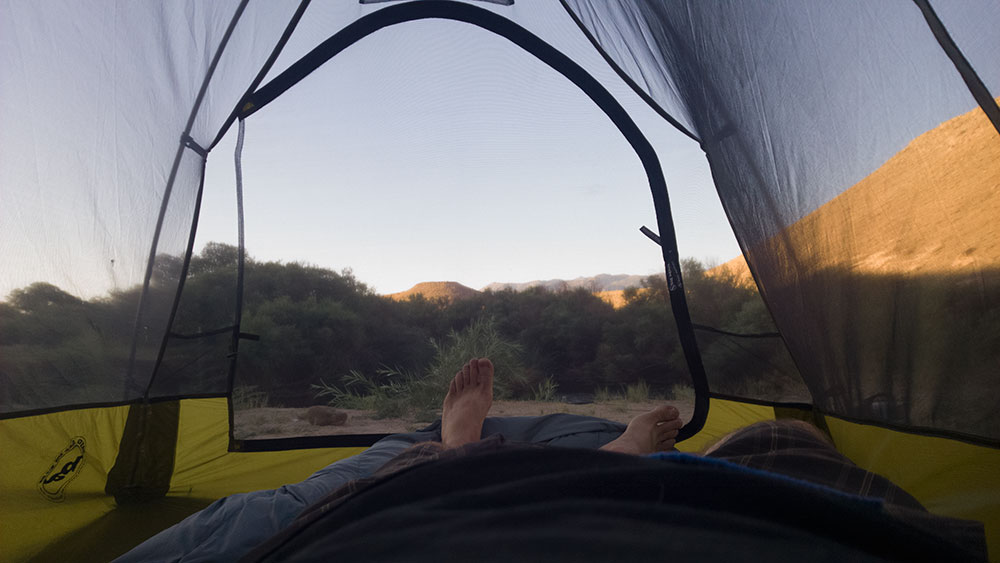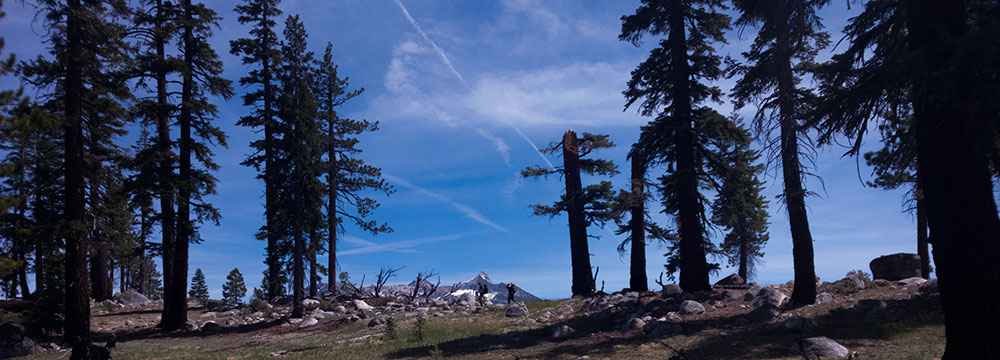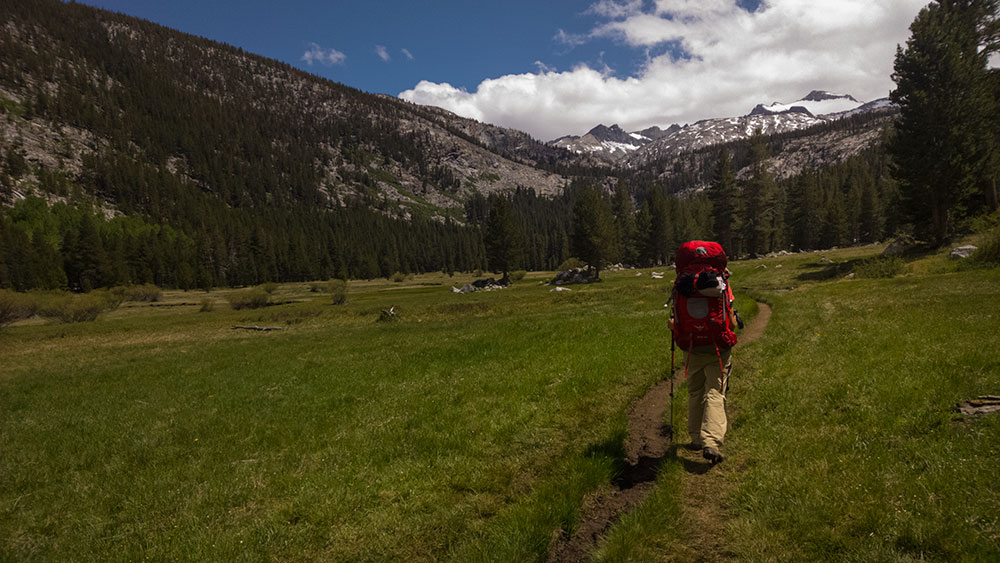 “What’s today?” I asked. The entirety of the group looked at each other until someone pulled out their phone and actually looked at the day and date on the screen before putting it away in disgust. I don’t remember what day this happened on, because it happened repeatedly.
“What’s today?” I asked. The entirety of the group looked at each other until someone pulled out their phone and actually looked at the day and date on the screen before putting it away in disgust. I don’t remember what day this happened on, because it happened repeatedly.
This didn’t surprise me. After all, we had set out to thru-hike the John Muir Trail which meant we would be outside for a total of 21 days. The only dates that had any real consequence were the 12th of June and the 4th of July. Not because we are super patriotic and were worried about celebrating that holiday, no it was because that was the day my parents were to meet us at Lone Pine to pick us up. Everything in between was divided into sections of trail and how much food we needed to carry.
What did surprise me was how quickly I forgot about time and what day it was. We all know I’m a bit of a stickler for time. I plan out my days to the point that my phone tells me that I have 30 minutes to clean the bathroom today, but by day two of our journey, I had no idea what day it was nor did I care. I assume that this happened to all four of us because each time someone asked what day it was the scene repeated itself. Even if someone had just had their phone out to take some photos.
I’d be lying if I said this wasn’t one of the most liberating parts of being in the backcountry. Our lives are so controlled by time. By this clicking of a clock that means that our lives are slowly passing us by and we’re stuck looking at a clock because we aren’t where we want to be. It’s an addition to our natural state that makes us be somewhere, do something or just watch it click by. When I hit the hospital and had to sign my next year’s wages away, it felt very strange to have to know the date. It was such an artificial reference point. It may have been the lack of oxygen entering my brain, but the date was something that only existed within those walls. On the trail, the date was the fact that it was sunny, still light out and we hadn’t had lunch yet.
The irregular rhythm of modern life is so quickly replaced by the rising and falling of the sun. It was rare that we stayed up past dark and we never once got up after the sun had actually hit our camp site. To bed with the big red ball and up as it peaks out over the spires and ridges of the mountains.
 As quickly as time melted away, so did hygiene. Not that we stopped brushing our teeth or attempting to be clean, but rather that the earth just swallowed us. Even our toes. Our toes were constantly covered by a layer of socks and boots, but after one day they were filthy. Even dipping them in the frigid, high alpine lakes and streams did nothing. We scrubbed but they looked like Hobbit feet nonetheless.
As quickly as time melted away, so did hygiene. Not that we stopped brushing our teeth or attempting to be clean, but rather that the earth just swallowed us. Even our toes. Our toes were constantly covered by a layer of socks and boots, but after one day they were filthy. Even dipping them in the frigid, high alpine lakes and streams did nothing. We scrubbed but they looked like Hobbit feet nonetheless.
One top of that they quickly became tan. At the end of a long day of hoofing it through nowhere, there is nothing better than pulling off one’s shoes and socks and letting the Freedom Toes© fly. After a day or two of this, we had tan lines and our skin had that strange texture and color that only comes from days of grime and constant sun exposure. Of course, it wasn’t just our toes. Our faces slowly went from clean-shaven, respectable looking men, to bearded, dirty, sunburned hobos.
Again, none of this was due to lack of trying to stay clean. Every one of us took multiple “baths” in the streams. We would wash our faces, necks, hands and feet every time we peeled off our sacks. Despite the fact that the water refreshed our souls and made us feel clean, we were filthy. The only way we knew that was the occasional wiff we would get from our own under arms. At which point, we felt bad for those around us until we realized they were experiencing the same.
To be honest, I didn’t every feel “dirty” until I made my way back to civilization. It’s an interesting thing to walk into a grocery store with four days of trail grime and a huge backpack on. Most don’t notice, but you quickly become self aware and concerned that you look and smell like that dude you saw sleeping on the Vegas Strip that one morning you got up early enough to see the after math of what that road holds.
The last three days have been some of the most stir-crazy of my entire life. Not only are we where we don’t want to be, the mountains, but we can’t go there. Every doc that we mentioned any semblance of returning to the JMT and they get a scared look in their eye and say something along the lines of that being a bad idea. So here KB and I sit, wishing we were somewhere else, bummed that our journey was so quickly ended and being told to sit and do nothing for a few days.
Luckily those few days are over and we’re off to Coyote Gulch. H.A.P.E. can keep me out of the mountains but it can’t force me out of the backcountry.
…hobo for life.
P. L. and R.



what was the altitude you were hiking? have you been that high before snowboarding or biking? what was different this time?
Not knowing what time it is, or what day, is very liberating!
We made it to over 10,000 feet which is nothing unusual for me. In the hospital at Mammoth, every doctor repeated the same thing, H.A.P.E. is pretty much random. People who have lived at altitude have gotten it. People who have visited the same place for years will suddenly come down with symptoms…